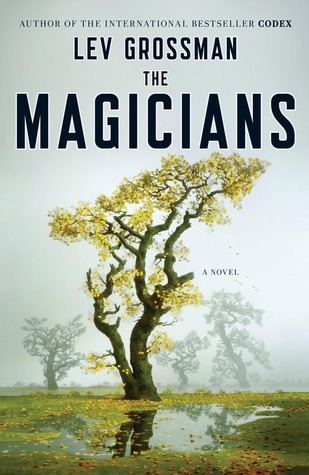Quentin Coldwater is brillant but miserable. He's a senior in high school, and a certifiable genius, but he's still secretly obsessed with a series of fantasy novels he read as a kid, about the adventures of five children in a magical land called Fillory. Compared to that, anything in his real life just seems gray and colorless.
Everything changes when Quentin finds himself unexpectedly admitted to a very secret, very exclusive college of magic in upstate New York, where he receives a thorough and rigorous education in the practice of modern sorcery. He also discovers all the other things people learn in college: friendship, love, sex, booze, and boredom. But something is still missing. Magic doesn't bring Quentin the happiness and adventure he though it would.
Then, after graduation, he and his friends make a stunning discovery: Fillory is real. -Plot summary borrowed from Goodreads
One of the most common quick and dirty summaries for this book is "Harry Potter with college kids." While this is a bland generalization, it's also damn accurate in that it does deal with students at a magical university, and, more to the point, was written for fantasy fans. However. This is a love it or hate it book, and if you go into it looking for the same familiar, comfortable, escapist tropes of many fantasy books, you're in for a rude awakening.
When I say this is a book for fantasy fans, I mean that it is a book written about a character who is one. Quentin has fallen irrevocably in love with a Narnia-esque series, and has convinced himself that his real life is a pale imitation of what it could be. If only magic were real. If only he could break through the wardrobe, onto Platform 9 3/4, down the rabbbit hole. Then, oh, then he would be happy.
(If you have never had this thought, then I'm not entirely sure what you're doing reading this blog.)
The greatness of this book is how relatable Quentin is. Even
The story is a little bit dark, often cynical, and will challenge how you view fantasy. The magic here is that Grossman pulls all that off while reminding you why you love fantasy in the first place. He's not taking snarky jabs at a genre he doesn't care for- he's just giving you a peek behind the curtain.
(One more note on the tone: Grossman has stated that he was depressed while reading this book, and that after treatment, is a much happier person. I am very interested to see how this affects the next books in the series)





0 comments:
Post a Comment